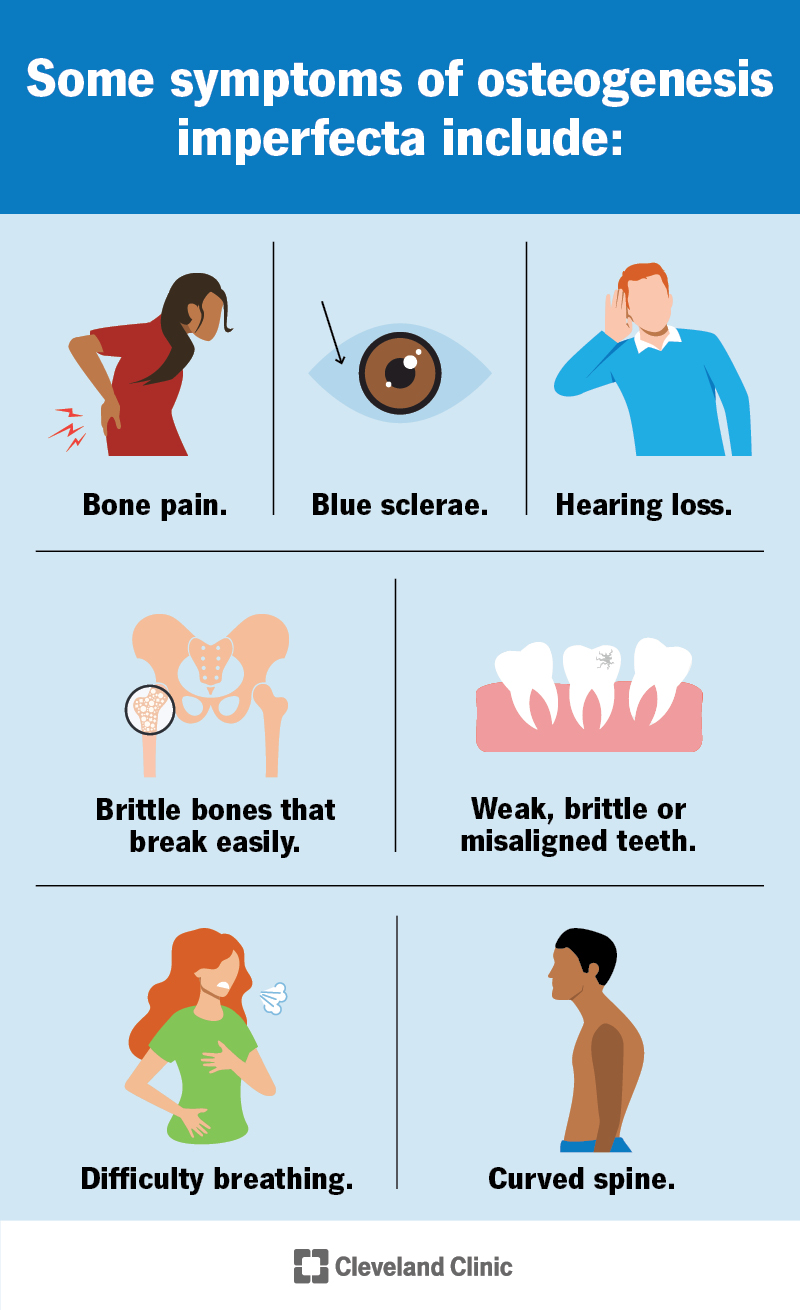
Signs and symptoms of this condition can include bone issues like:
You might also experience:
A genetic change causes this condition. Changes in the COL1A1 or COL1A2 genes cause most cases. Changes in other collagen genes cause rarer types of OI.
The genetic changes that cause OI can be random. You may also inherit them from your biological parents. You’re more likely to have OI if someone else in your biological family has it. Some people have the genetic variation but never develop osteogenesis imperfecta.
You can inherit the gene change from one parent (dominant) or both (recessive), depending on the type of OI.
Complications of osteogenesis imperfecta can include:
Healthcare providers usually diagnose brittle bone disease in childhood with:
A pregnancy care provider might suspect osteogenesis imperfecta before birth. They may see signs of OI on ultrasound images. They can confirm the diagnosis during pregnancy with an amniocentesis. They can also diagnose it after the baby is born.
Ask your provider about genetic counseling. This can help you understand your risk of passing osteogenesis imperfecta to your biological children.
Treatment for osteogenesis imperfecta can increase your bone strength. It can also help you live more independently. You might need:
Talk to a healthcare provider if you think you or your child has symptoms of OI. Tell your provider if you break bones easily. Especially without a major injury. Your provider can recommend additional testing if needed.
Advertisement
Go to the emergency room if you or your child breaks a bone. Tell providers in the ER if you know you have osteogenesis imperfecta.
Mild forms of osteogenesis imperfecta usually won’t affect your lifespan. But life expectancy varies depending on the type.
Because brittle bone disease is a genetic condition, you can’t prevent it. If you or your partner has OI or if you have a relative with the condition, you can talk to a genetic counselor. They can advise you about the risks of passing on the condition.
Learning that your child has a condition that’ll affect them for their whole life can feel overwhelming. The future might look much different from what you expected. But early occupational and physical therapy can help both you and your child adapt to these changes.
It can also help to have honest conversations with your child’s healthcare team and your loved ones every step of the way. They can help you make a plan to manage symptoms and prepare for the future.
Advertisement
When you have an inflammatory or autoimmune condition, you need experts by your side. At Cleveland Clinic, we’ll create an individualized treatment plan for you.

Last reviewed on 06/19/2025.
Learn more about the Health Library and our editorial process.